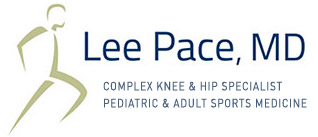
Meniscal Surgeon in Farmington, CT
Athletes, especially those involved in contact sports, are at risk of meniscus tears due to trauma (sudden bend or twist in the knee). Degenerative meniscal tears are common in the elderly due to age factor. Lee Pace, MD,, provides diagnosis and individualized non-operative and operative treatment plans in Farmington, CT. Lee Pace, MD, also provides highly specialized care during and after the surgery. Contact Lee Pace, MD’s office for an appointment today!
Anatomy of the Meniscus
The meniscus is an essential shock absorber in the knee and each knee has two menisci. They are C-shaped structures of specialized cartilage that protect cartilage and aid in stability of the knee. However, a twisting injury can tear one or both of your menisci, compromising their essential function.
Symptoms of Meniscal Tears
A torn meniscus causes pain, swelling, stiffness, catching or locking sensation in your knee, making you unable to move your knee through its complete range of motion.
Diagnosis of Meniscal Tears
Your orthopedic surgeon will examine your knee, evaluate your symptoms and medical history. Advanced imaging in the form of a MRI is typically needed to confirm the diagnosis.
Treatment of Meniscal Tears
Spontaneous healing after a meniscus tear is rare and most people require surgery to repair or remove the torn portion of meniscus. Whenever possible, meniscus repair is a superior option as meniscus removal (meniscectomy) increases the chance of developing arthritis later in life. Fortunately, meniscus repair has become much more reliable as techniques and technology have advanced.
The procedure is routinely done arthroscopically and at most may require 1-2 small incisions on the knee that are in addition to the standard arthroscopic portal incisions in the front of the knee.
Although the recovery period after meniscus repair is longer than after a meniscectomy, the benefits of meniscus preservation far outweigh any short term benefits that come with meniscectomy. After successful repair, patients are typically allowed to return to impact activities such as running 3 months after surgery.
If you would like to have additional information on meniscal tears or would like to learn more about meniscal surgery, please contact Lee Pace, MD,, serving the communities of Farmington, CT.





